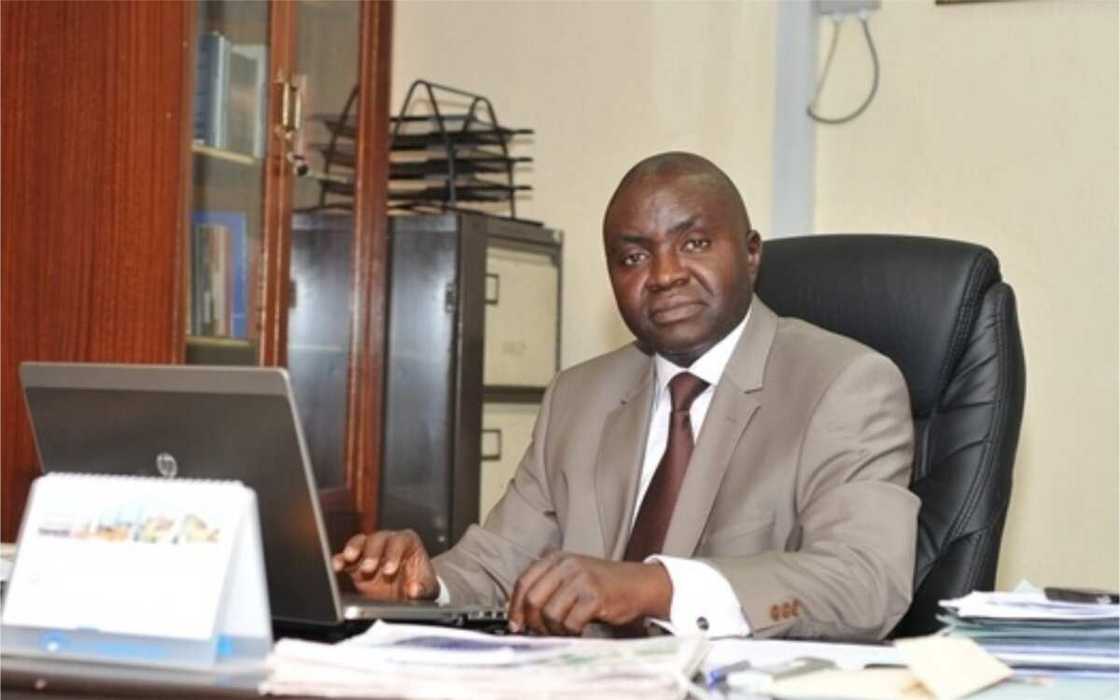Naira Fall, Dollar Supply Top CPPE's 10-Point Agenda for Acting CBN Governor Olayemi Cardoso
- CPPE has set 10 points agenda for the new Central Bank of Nigeria management led by Yemi Cardoso
- Among various agendas, the private sector group called on the CBN's new management to clear forex obligations promptly to restore FX market confidence
- Others include addressing low credit access for small businesses and reviewing bank capital requirements
PAY ATTENTION: Click “See First” under the “Following” tab to see Legit.ng News on your Facebook News Feed!
The Centre for the Promotion of Private Enterprise (CPPE) has outlined a 10-point agenda for the new management team of the Central Bank of Nigeria (CBN).
The apex bank announced on Friday, September 22, 2023, that Olayemi Cardoso will take over from Godwin Emefiele as the new governor in an acting capacity pending senate confirmation.

Source: UGC
In a statement made available to Legit.ng and signed by the managing director and CEO of CPPE, Muda Yusuf, emphasis was placed on addressing the challenges in Nigeria's financial system.

Read also
"They are the problem": Bureau de Change Operators knocked for dollar scarcity, naira decline
CPPE also highlighted the pressing need to restore confidence in the foreign exchange market as the naira continues to struggle, Punch reports.
PAY ATTENTION: Join Legit.ng Telegram channel! Never miss important updates!
Naira recently crossed the N1,000 threshold against the US dollar due to heightened demand and insufficient supply.
Here is the 10-point agenda for the new CBN team
Here is a breakdown of the expectations from CPPE for the new CBN management team.
Restore confidence in the forex market
Clear backlog of forex obligations to rebuild market confidence and restore the confidence of domestic and foreign investors.
Deepening the financial system
Mobilization of financial resources from the surplus end of the economy to the deficit segment of the economy.
Efficiency of the financial system
The significant gap between deposit and lending rates within the Nigerian banking system is excessively wide, pointing to substantial efficiency challenges within the system.
Capital requirements for banks
Push for recapitalisation of the banks to reflect the depreciation of the Naira.
Ways and means
Under the new management, CBN should offer loans to the federal government within statutory limits.
Naira redesign policy
The Naira redesign policy should be suspended indefinitely because it is disruptive and inflicts unbearable hardships on businesses and citizens.
Tenure and cost of funds in the banking system
CPPE also advocates for reduction in the ending rate, especially as SMEs pay as much as 30% interest on loans.
Concentration risk in the banking sector
Steps should be taken to reduce concentration risks in the banking system as a strategy to manage systemic threats to the banking system.
Currently, the top ten banks account for over 80% of bank assets, total loans, and deposit liabilities.
Stakeholder engagement
The new CBN management needs to relate well with stakeholders, both in the public and private sector.

Read also
FG’s economic plans in ruins as naira breaks record against the dollar in the parallel market
Observe the high standards of corporate governance
The CBN governor must adhere to stringent corporate governance standards to safeguard the credibility and integrity of the central bank.
CPPE calls for a fair and equitable environment for all participants in the financial sector, and the regulatory process should be transparent, fair, equitable, and firm.
KPMG reverses Nigeria’s economic growth forecast for 2023, gives reasons
In another report by Legit.ng, Global financial service firm KPMG announced a new forecast for the Nigerian economy in 2023.
In a flash note titled ‘Underwhelming Q2 2023 GDP Growth Recorded’, KPMG adjusted its growth forecast to 2.65 percent – down from 2.85 percent earlier projected.
Details from the report show that KPMG listed the factors for the downward projection to low oil production, muted government investment in the economy, the impact of subsidy removal, and foreign exchange (FX) rates unification on households, among others.
Source: Legit.ng



